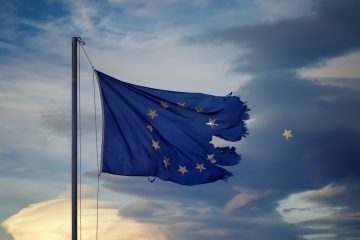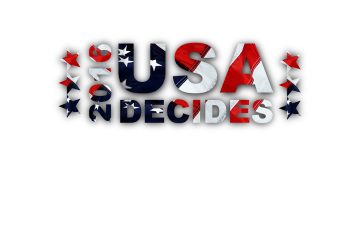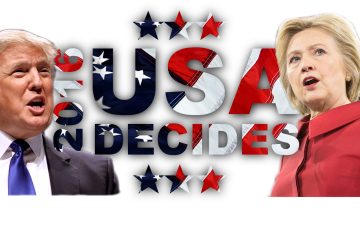
Europe is no longer safe
The pillars of Europe’s security are damaged beyond repair and Europe’s leaders are in denial. Expect very heavy turbulence starting next year. The peaceful post-1989 order on the old continent rested on three key pillars: NATO, the EU, and the ruling mosaic of centre-left-and-right parties. NATO provided the hardware, the EU delivered the soft-ware, and the ruling parties offered legitimacy. All these three pillars are now damaged beyond repair. Donald Trump’s victory has buried NATO. Collective defence and deterrence can only work if they are not subject to speculation. Trump has made it clear that he wants to keep his options open. The everything-goes policy is a recipe for anarchy, not security. I am not even talking about Trump’s links with …

Fake News? The blame-game in a post-Trump world
Donald Trump’s victory came as a surprise and/or shock to most pollsters, journalists, scientists, and citizens all over the world. And ever since Trump became the president-elect one question seems to be on many people’s minds: ‘who (or what) is to blame?’ The answers to this question ranges from the electoral system to international influence but one particular scapegoat is more prominent than others: the Internet. Indeed, not short after Trump’s victory Buzzfeed had identified the first villain: fake news. In their analysis they suggested ‘that top fake election news stories generated more total engagement on Facebook than top election stories’ from other serious outlets. The threat of fake news was born. And other mass media outlets followed. We have probably all …

Will Congress be able to hold President Trump in check?
Donald Trump will become the 45th President of the United States in January, but will he actually be able to carry out his agenda? Nigel Bowles writes that he will largely be able to. In the areas of trade, security, taxation and judicial appointments Congress will struggle to constrain him under current law and politics. Changing immigration law and reforming the Affordable Care Act are likely to prove more challenging. Nonetheless, during the first year of the Trump presidency American politics is likely to give the appearance of being what it only rarely is: a presidential system. For better or for worse, President Trump really will be in charge. The United States constitution is Madisonian in design and spirit. Separation of powers and …

How we correctly predicted a Trump victory
The US election result came as an absolute shock to many, but it was the pollsters that took the biggest hit. The major poll-based forecasts, a lot of models, the prediction markets, even the superforecaster crowd all got it wrong. They estimated high probabilities for a Clinton victory, even though some were more careful than others in claiming that the race would be very tight. Our prediction survey, however, was spot on thanks to the method we used for Oraclum Intelligence Systems, a start-up developed out of our academic work. We predicted a Trump victory, and we called all the major swing states in his favour: Pennsylvania (which no single pollster gave to him), Florida, North Carolina, and Ohio. We gave Virginia, Nevada, Colorado, and …

A political earthquake with few US precedents
The election of Donald Trump is a political earthquake with few direct precedents. Andrew Jackson’s election as a populist in 1832 is one possibility. As a novice to elected office, President Eisenhower’s election in 1952 has that in common but little else. Ideologically, Trump’s radical reforms permit a loose analogy with Ronald Reagan’s agenda in 1980, but President Reagan was an outward-looking and internationally engaged White House incumbent. Trump is decidedly inward looking and isolationist. His conversion into a normal presidential candidate has been remarkable. Trump’s intelligence and knowledge of the world of social media and TV entertainment gave him a major advantage during the Republican presidential primaries and then the election campaign. Both in the state primary appearances and …

Trumped-up vs. Clintonesque: what text analysis can teach us about the US elections
The 2016 United States presidential election—or in John Oliver’s most recent definition: ‘lice-on-a-rat-on-a-horse-corpse-on-fire-2016’—has reached its final leg. As a political scientist and a computational text analyst, I cannot resist sharing my two cents on an election that has certainly broken a model or two. Following in the footsteps of two colleagues who recently produced two excellent articles (you can read them here and here), in this post I’d like to analyse a few examples of the exceptional language used in this elections cycle. Text analysis can help us understand two commonly held beliefs or facts (the distinction has become a bit blurred over the course of this year’s election cycle) about the US elections: Donald Trump is running a negative …

Words that matter: What text analysis can tell us about the third presidential debate
The final Presidential debate of 2016 was as heated as the previous two—well demonstrated by the following name-calling exchange: CLINTON: …[Putin would] rather have a puppet as president of the United States. TRUMP: No puppet. No puppet. CLINTON: And it’s pretty clear… TRUMP: You’re the puppet! CLINTON: It’s pretty clear you won’t admit … TRUMP: No, you’re the puppet. It is easy to form our opinions of the debate and on the differences between the Presidential candidates on excerpts like this and memorable one-liners. But are small extracts representative of the debate as a whole? Moreover, how can we objectively analyse what was said, who got to say the most, and how the candidates differed in their responses? One approach is …

The Final Hundred Days: Conventions, Questions, and Conclusions
Fewer than 100 days. That is all that remains in what will, perhaps, go down as the most unpredictable American presidential election in at least a century. The candidates—Democrat Hillary Clinton and Republican Donald Trump—are the two most disfavored and distrusted aspirants for the office ever nominated by a major American political party. And yet, here they stand. An article I wrote in March attempted to forecast how Hillary Clinton’s campaign would seek to ‘win the narrative game’ by defining the election as a choice between unity and division, love versus hate, hope over fear, and the like. By any objective comparison of the 2016 Republican and Democratic National Conventions, it seems that Mrs Clinton and the Democrats are well …









